News
Imitation products: where to draw the line?
24 Nov 2015Earlier this year I noticed a commercial for concentrated syrup in a bottle with a dispensing pump: interesting, different, distinguishing! But… at the same time I had a different thought: “doesn’t this look a lot like those dispensing pumps for liquid soap?”
As part of my work at the NVC Netherlands Packaging Centre I dig into the various European packaging laws on a regular basis, and in this case the Dutch law for safe packaging of household chemicals (Warenwetbesluit veilige verpakking huishoudchemicaliën) came to mind. Soap can hardly be considered a dangerous substance – it is unlikely somebody will be seriously harmed by drinking a cup of lemonade that was accidentally made with soap – but I still decided to look into the case. The law clearly states that it is not allowed to use packaging for household chemicals that can confuse the users about the nature of the product, or that has the shape of food packaging. But how does it work the other way around?
It turns out another piece of EU legislation is even more relevant for this case: the Council Directive 87/357/EEC of 25 June 1987 on the approximation of the laws of the Member States concerning products which, appearing to be other than they are, endanger the health or safety of consumers. This old, compact piece of EU legislation is particularly relevant, because it is also mentioned in the new cosmetic products regulation (Regulation (EC) No 1223/2009 on cosmetic products, Article 3). Liquid soap can be considered a cosmetic product. Through this regulation it is a legal requirement for cosmetic products that they do not “possess a form, odour, colour, appearance, packaging, labelling, volume or size, such that it is likely that consumers, especially children, will confuse them with foodstuffs and in consequence place them in their mouths, or suck or ingest them, which might be dangerous and cause, for example, suffocation, poisoning, or the perforation or obstruction of the digestive tract.” Again, this applies to the case that food packaging would be used to pack non-food products, not the other way around.
In the case of using something that closely resembles a soap dispenser for a food product like concentrated syrup, there does not appear to be any legislation that prevents this. The soap producers were clearly first to market with this type of packaging, but could this theoretically lead to the situation where in the future this type of dispenser will not be allowed for liquid soap anymore, because it can be confused with concentrated syrup for making soft drink? I wonder if this possibility has been considered at all. It is possible the syrup dispenser will become a big success, just like the soap dispenser has become in its own product category. Who draws the line, and where? In the NVC Course Programme in Packaging the NVC teaches you to create a good overview of all the processes involved in packaging, including all the legislation, which helps you to consider all the possible consequences of changes to your packaging.
Ger Standhardt, manager Knowledge Development & Projects at the NVC Netherlands Packaging Centre.

Related news
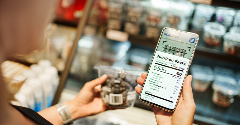
Has ‘clean’ had its day?
22 Dec 2025
Wielding clean-label positioning and fortification as marketing levers is a dangerous strategy, and brands would be better off explaining the hows and whys of the ingredients in their products, say experts.
Read more
Celebrating the winners of the Fi Europe Innovation Awards 2025
3 Dec 2025
Food industry stakeholders celebrated as the winners of the Fi Europe Innovation Awards were announced at a ceremony in Paris.
Read more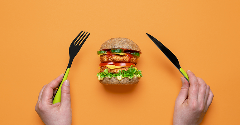
Alternative protein startups pivot to B2B ingredients amid funding shift
27 Nov 2025
Alt protein startups are pivoting from consumer meat analogues to high-value B2B ingredients, driven by stronger investor interest, better margins, and clearer commercial pathways.
Read more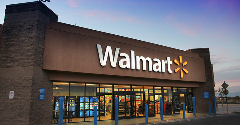
Walmart Marketplace’s record growth prompts search for UK sellers
26 Sep 2025
Walmart’s third-party e-commerce platform, Marketplace, has witnessed extraordinary growth – but a need for more product diversity has prompted the retailer to recruit UK sellers.
Read more
The winners of Vitafoods Europe Startup Challenge 2025 revealed
29 May 2025
Four startups – Yomio Drops, PFx Biotech, Revobiom, and Favamole – took top prizes at this year’s Vitafoods Europe Startup Challenge awards.
Read more
East takes on West in the fight for future food flavours
30 Apr 2025
Asian and South American flavours are now key components on global menus, driven by a growing global appetite for culinary mashups.
Read more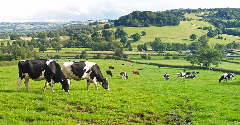
Food companies urged to bring ‘joy’ and urgency to healthy food mission
14 Mar 2025
For too long, businesses have treated health and sustainability as separate agendas – but there is growing evidence to show diets that benefit human health can also enhance that of the planet, say experts.
Read more
Entries open for inaugural Vitafoods Europe Innovation Awards
29 Jan 2025
Entries are open for the inaugural Vitafoods Europe Innovation Awards, celebrating the ingredients, finished products, partnerships, and initiatives redefining the nutraceutical landscape.
Read more
Paris Olympics: Food and beverage brands champion health, fun, and sustainability
5 Aug 2024
Food and beverage brands are aligning with the Paris Olympics 2024 Food Vision, which emphasises sustainability, local sourcing, and plant-based diets.
Read more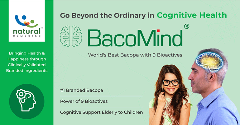
Natural Remedies: Bringing health and happiness via validated branded ingredients
18 Apr 2024
Natural Remedies is an internationally renowned botanical healthcare company committed to advancing the field through rigorous research and the development of clinically validated Branded Ingredients. Guided by our foundational principle of ‘BEING USEF...
Read more